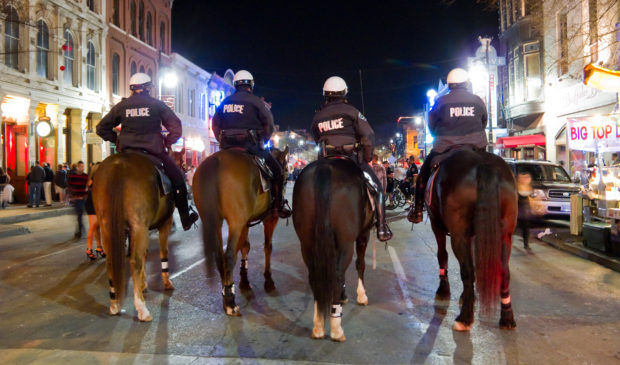Public Safety Commission has a HOT debate
Thursday, June 8, 2017 by
Jack Craver As the city of Austin scrounges for money to hire more police officers, firefighters and paramedics, it shouldn’t look to the tourism industry for help.
That was the message delivered to the Public Safety Commission Monday by Bill Worsham, a member of the Visitor Impact Task Force, which recently approved a report endorsing a 2 percent increase in the Hotel Occupancy Tax to fund an expansion of the Austin Convention Center. The city’s HOT rate is 9 percent, on top of the state rate of 6 percent.
Worsham, who until recently was a member of the Public Safety Commission, had been appointed to the task force last year to represent the “public safety community” perspective.
While state law forbids the use of local hotel occupancy taxes to fund general municipal services, there has been some talk locally about whether the city could use some of the revenue to pay the police, fire and Emergency Medical Service costs associated with large festivals such as South by Southwest and Austin City Limits.
Unfortunately, said Worsham, other members of the task force were uninterested in using the tax revenue on anything besides what it is currently earmarked for: the Austin Convention Center, historic preservation, arts and marketing of tourism. That’s likely because most of them represent constituencies that are already getting a share of the revenue, he said.
“Everybody around the table had a piece of the revenue pie,” he said. “We spent a lot of time talking about how to continue these revenue streams to the various entities that are already receiving it.”
He explained that other members of the task force were only receptive to diverting tax revenue to law enforcement purposes if a separate stream is created through a tourism public improvement district, to which hotels (rather than hotel guests) would pay a designated tax to support local tourism investments.
Worsham also cast doubt on whether expanding the convention center, which receives the lion’s share of the HOT revenue, will have much of an impact on the local economy. He referenced a presentation given to the task force by a convention center critic that claimed that only 2 percent of the city’s visitors are in town because of conventions.
Worsham’s arguments clearly resonated with some of the commissioners.
Commissioner Brian Haley later told the Austin Monitor that he hoped City Council would review the hotel tax policy and “keep in mind the city services that are providing safety for the tourists coming into town.”
Scott Joslove, president of the Texas Hotel & Lodging Association, told the Monitor that the fiscal benefits of tourism in Austin far outweigh any associated costs. In addition to the hefty amount hotels pay in local property taxes, he said, visitors who come to Austin for SXSW or similar events deliver millions to city coffers through sales taxes and alcohol taxes.
Joslove also dismissed the comparison between the number of convention attendees to the total number of visitors as a “silly statistic.” If the hotel industry didn’t see the value of the convention center, he asked, why would it so enthusiastically support using the tax revenue it collects from guests to support it?
Told by a reporter of Joslove’s argument, Worsham replied: “He’s paid very well to make that case on behalf of the lodging industry and he does a good job of it.”
Somewhat separate from the HOT debate is the fact that Council has consistently voted to waive fees for SXSW, including police costs. In 2015, the festival cost taxpayers $1.5 million just in police overtime.
In an interview, Public Safety Commissioner Daniela Nunez expressed conflicted feelings about the fee waivers for SXSW.
“It’s something that the city really prioritizes, conserving a cultural, artistic identity,” she said. “I don’t think it’s necessarily something we should be doing but I know that South by is a lot of things to a lot of different people.”
Photo by Mike made available through a Creative Commons license.
The Austin Monitor’s work is made possible by donations from the community. Though our reporting covers donors from time to time, we are careful to keep business and editorial efforts separate while maintaining transparency. A complete list of donors is available here, and our code of ethics is explained here.
You're a community leader
And we’re honored you look to us for serious, in-depth news. You know a strong community needs local and dedicated watchdog reporting. We’re here for you and that won’t change. Now will you take the powerful next step and support our nonprofit news organization?









